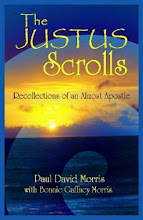If I knew that my adult son, or one of my adult daughters were hurting and in trouble, and it was in my power to help them, would I do it? If they were suffering, would I come to their rescue? You bet I would. I would do so, so fast that it would make your head spin. And what if they were suffering because of me or because of something I had asked them to do? Would I come to assist them. I would fall all over myself trying to do so.
Jesus himself used this analogy, “Or what man is there of you, whom if his son ask bread, will he give him a stone? Or if he asks a fish, will he give him a serpent? If you then, being evil, know how to give good gifts unto your children, how much more shall your Father which is in heaven give good things to them that ask him?”
Then how is it that the Hebrews were enslaved for 400 years in Egypt? How often did fathers and mothers beseech God for their children? How is it that today believers are in pain, and continue in pain until death? Have they not sought relief from God? Has that relief come? Did they enjoy their remaining years in comfort?
In the light of the fact the God is all-loving and all-powerful, and in the light of the promise of his Son, how is it that God allows his children to suffer? How is it that he appears less caring than an earthly father, who is “evil,” yet gives of himself to his son when he is needed?
An interesting event in the life of Peter and John may shed some light on this conundrum:
They called the apostles in and had them flogged. Then they ordered them not to speak in the name of Jesus, and let them go. The apostles left the Sanhedrin, rejoicing because they had been counted worthy of suffering disgrace for the Name. Day after day, in the temple courts and from house to house, they never stopped teaching and proclaiming the good news that Jesus is the Christ.
What is the purpose and function of this life we live each day? There is a ready answer to this question, both as an unique individual and in what it does to each person. The purpose of this life is to fulfill the specific and unique reason God allowed us life – a purpose no one else but the individual can fulfill. Of equal relevance, the purpose of this life is to form our character, not provide for our comfort.
Peter and John were flogged. Their suffering and humiliation was incalculable. Yet they rejoiced that they were counted worthy of suffering for the name of Jesus.
This life is infinitesmal compared to eternity. However small it may be by comparison, it has relevance and is important. It is in this life that relationship with God is established. It is in this life that our character is formed. It is in this life that we accomplish and fulfill our raison d'etre. Much, if not most of this is in preparation for the next life in which there will be no death. We will live another life, a life that has no end.
Now suppose I had the power and freedom to help my children, but knew that in doing so, I would somehow diminish them? That I would somehow make them less than what they could be? Of course, human fathers do not always know this. But God does.
Is it not an act of love to allow pain if one knows that pain is the very thing that will bring about something good, something that would make the pain infinitely worthwhile? We see this in athletics all the time and applaud it. We admire players who play despite their pain. What character, we say. What commitment, what dedication to the game, to the cause, to the Lord Christ.
Is it any wonder then that Peter and John rejoiced that they were counted worthy to suffer?
Some consider suffering or labor for whatever reward or blessedness there may be in heaven to be irrelavent, if not ridiculous. Such dedication is derided as “pie in the sky.” That is an unfortunate and erroneous mindset. It is a mindset that could only take place this side of eternity. Once one is there, once one hears, “Well done!”; after one has experienced 10,000 years of joy, peace and contentment, how relevant will the pain and suffering in this life seem?
That is God's perspective. He can view the 400 years in Egyptian bondage as well as the discomfort of our own lives from the perspective of eternity. Does he hurt when we hurt? I believe he does. In the same way, when I see my children suffer, I suffer also. It is impossible for me to believe that God is indifferentt to our pain. As the writer to the Hebrews said, “He can be touched with the feeling of our infirmities.” That is emotional language. That is “feeling” language. But God can see what we cannot. “Eye has not seen; ear has not heard, neither has it entered into the heart of man what God has prepared for him.”
It can be seen by our loving father. It can be seen by the one who longs to give us, and at the right time, will give us what our minds can't imagine.
Happy Father's Day.
Subscribe to:
Post Comments (Atom)


No comments:
Post a Comment